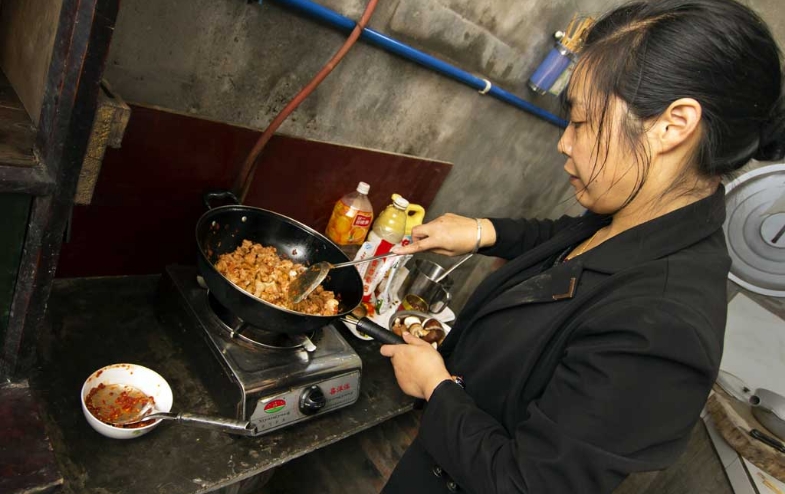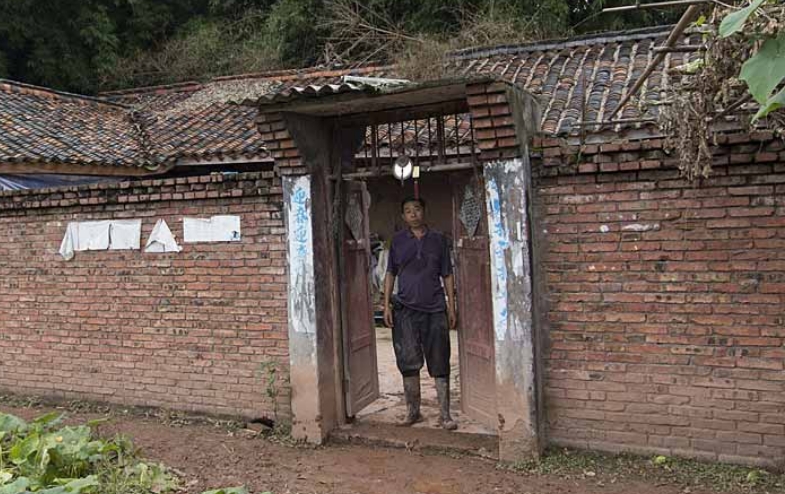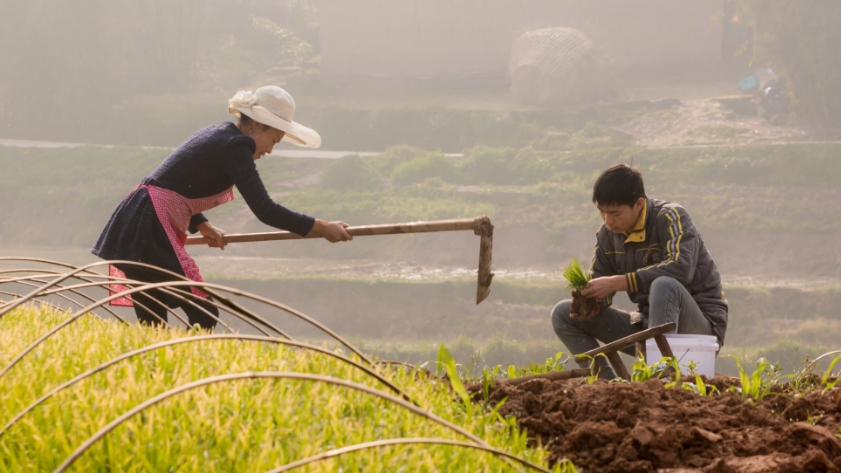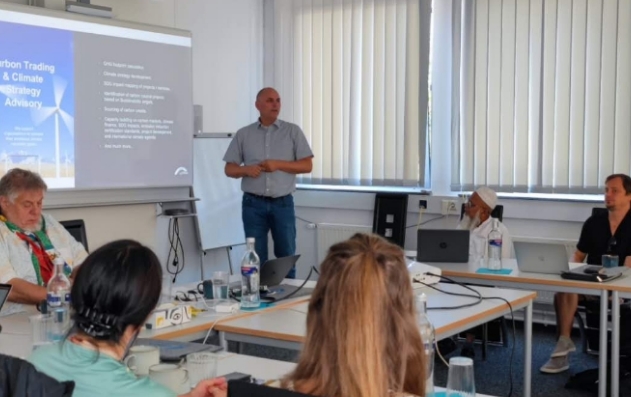Zeng Yuying
Zeng Yuying
Since the installation and initial training, the family has been using the digester at its best capacity, saving enough money to cover the cost of the digester in a year and supporting the repayment of their house mortgage.
Digester installed in 2011
Saving around 120EUR every year

The county of Jian Yang has been selected by the Sichuan Rural Energy Office to be part of a clean energy deployment pilot programme, together with other districts, among the poorest of the Sichuan province.
Zeng Yuying and her family took the opportunity of the beginning of the programme and the construction of their new house to build a biogas digester.
Zeng Yuying and her family live in a village in the district of Jian Yang county, in the eastern part of the Sichuan province. The household comprises the Zeng Yuying, her husband, an eighteen-year-old son, a five-year-old daughter and the mother of Zeng’s husband. The daughter is going to kindergarten, while the son is working in Jian Yang city and coming home every day. The family keeps its production & livestock for its own consumption, including cereals, vegetables, fruits and chickens. They do also have one sow.
The family annual income is around 1,500 EUR in 2011. Both parents are doing morning, afternoon or evening shifts for the commune, repairing roads and public facilities. As an additional income, they sell their sow’s piglets once to twice a year.
Before the construction of the digester, the family was using a traditional cook stove powered by firewood.
Xie Guo’An
Xie Guo’An
Since the installation of the digester, the family has been able to cook three meals per day using the biogas generated and was able to invest some of the money saved on fuels and fertilizers to invest in their agricultural activities.
Digester installed in 2011
Reinvesting the money saved thanks to the digester into own farming activities

Xie Guo ‘A lives in the Jian Yang county in Sichuan Province. Xie, together with his wife and his grown-up son, work on the family’s fields and live in a traditional house, made with daub.
Since the installation of the digester, the family has been able to cook three meals per day using the biogas generated and was able to invest some of the money saved on fuels and fertilizers to invest in their agricultural activities.
The Xie’s family lives in the Jian Yang County, in the eastern part of the Sichuan province. The household comprises Xie, 62, his wife, 59 and a grown-up son.
The family sole occupation is farming. Two-mu land (13 acres) is used to cultivate chives which are sold. The rest of the land is used to cultivate vegetables and cereals which are for the family and livestock consumption. The livestock include one sow and piglets, chickens and ducks. The family has been using a mix of coal and wood for the cooking.
The family average annual income is around 1,500 EUR in 2011.
Huang Mingying
Huang Mingying
Huang Mingying was first acquainted with the household biogas programme when families in her village starting installing biogas digesters in their home. She saw there a solution which could help her saving money, have a cleaner living environment and provide her with a much more convenient cooking fuel, freeing her from long hours in the kitchen and giving her more time to manage her small family business.
Digester installed in 2012
Saving around 120EUR every year

Huang Mingying lives with her husband, her parents and her eight-year-old son in a small village in the Santai county. The grand parents are farming the land, while Huang and her husband operate a small business from their home, selling crops and fertilizers.
The family is using the cereals and corn to feed the family and livestock and sell most of its production of vegetables and fruits. They also raise chickens, for meat and eggs, and sell the offspring of their sow.
Although the family was able to double its total income with the extra revenue generated by the family business, Huang was looking forward to being able to save on cooking fuels.




